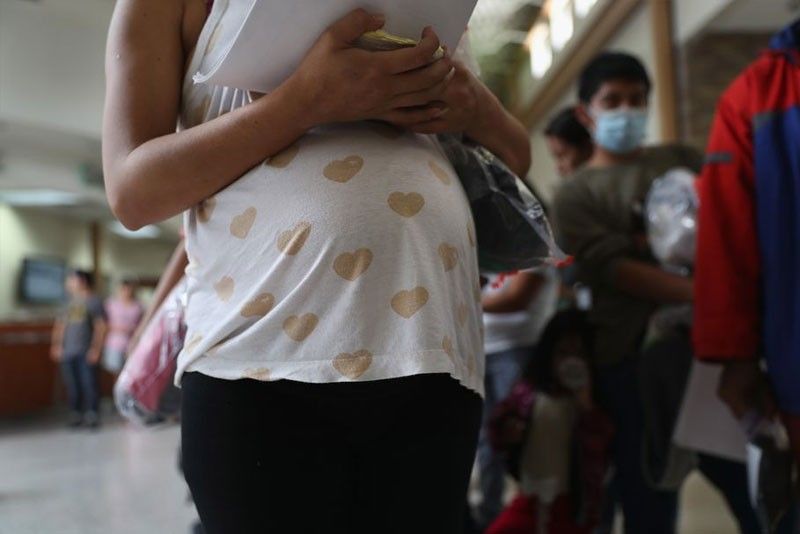PopCom wants teenage pregnancies addressed

MANILA, Philippines — For the Commission on Population (PopCom), a two-pronged approach needs to be implemented to effectively address the country’s soaring teen pregnancies, pegged in 2017 alone at 196,000 by the Philippine Statistics Authority (PSA).
PopCom executive director Juan Antonio Perez III said the implementation of these programs must be hastened to curb under-age pregnancies. Otherwise, the number of pregnant girls will continue to increase by 200,000 every year.
“There is a sense that the current programs are not able to turn the tide of teen pregnancies... There are two elements in the RPRH (Responsible Parenthood and Reproductive Health) law on teen-pregnancies that we have to implement to address this concern,” he told The STAR.
Perez said one is the integration of the comprehensive sexuality education (CSE) in schools, the implementation guidelines of which was already approved by the Department of Education (DepEd) in July 2018. A similar program for the out-of-school youth will also be carried out.
The other approach is to prevent “repeat” pregnancies among teenage mothers during their adolescent years.
Perez noted that DepEd is still developing the training modules on how teachers should teach CSE among their students. DepEd, he claimed, is confronted with the hesitance of many teachers to teach the subject, fearing they may not be able to handle it well.
“CSE is the long-term action in addressing teen pregnancy and it will take some years to have an impact. The best strategy really is to implement the short-term solution, which is to prevent repeat pregnancies among teenaged mothers,” he added.
The prevention of repeat pregnancies is one of the eight provisions in the RPRH law that were removed by the Supreme Court when it declared the measure as “not unconstitutional” in 2014.
Perez said repeat pregnancies can be avoided only if the teen parents are able to access family planning services without the consent of their parents.
“For teenage parents, there is a process for those who are covered by Department of Social Welfare and Development guidelines, where the social workers can act as guardians but this covers only a few adolescent moms,” he added.
Since 2010 up to 2017, some 1.2 million adolescent mothers have given birth. In 2014 alone, this was at a daily rate of 534 up to a high of 576.
“(The) repeat pregnancy…percentage is increasing currently by 17 percent annually. This is what we have to prevent – the teenage mothers getting pregnant again during their adolescent years,” Perez stressed, citing a PSA survey which showed 30,000 repeat pregnancies in 2017.
Although there is a decrease in this pattern for the past three years, Perez said the rate of decrease is slow.
“There will be a rapid decline in teen pregnancies if we allow teen parents to access family planning and services... Otherwise, we will have families led by teen parents who cannot help themselves without programs that will help them,” he added.
Currently, the PopCom Board, which is headed by the National Economic and Development Authority, is preparing a draft Executive Order that will be submitted to Malacañang to declare teen pregnancies as a “national emergency.”
Perez said such an EO will hasten the implementation of the two programs, particularly the one on repeat pregnancy since it has been struck down in the RPRH law.
- Latest
- Trending


























